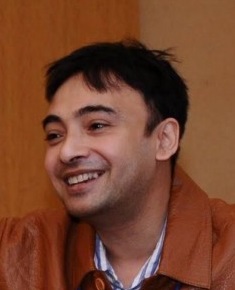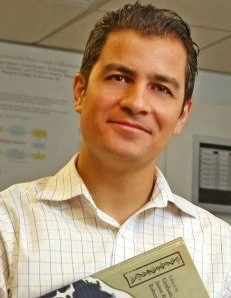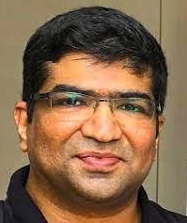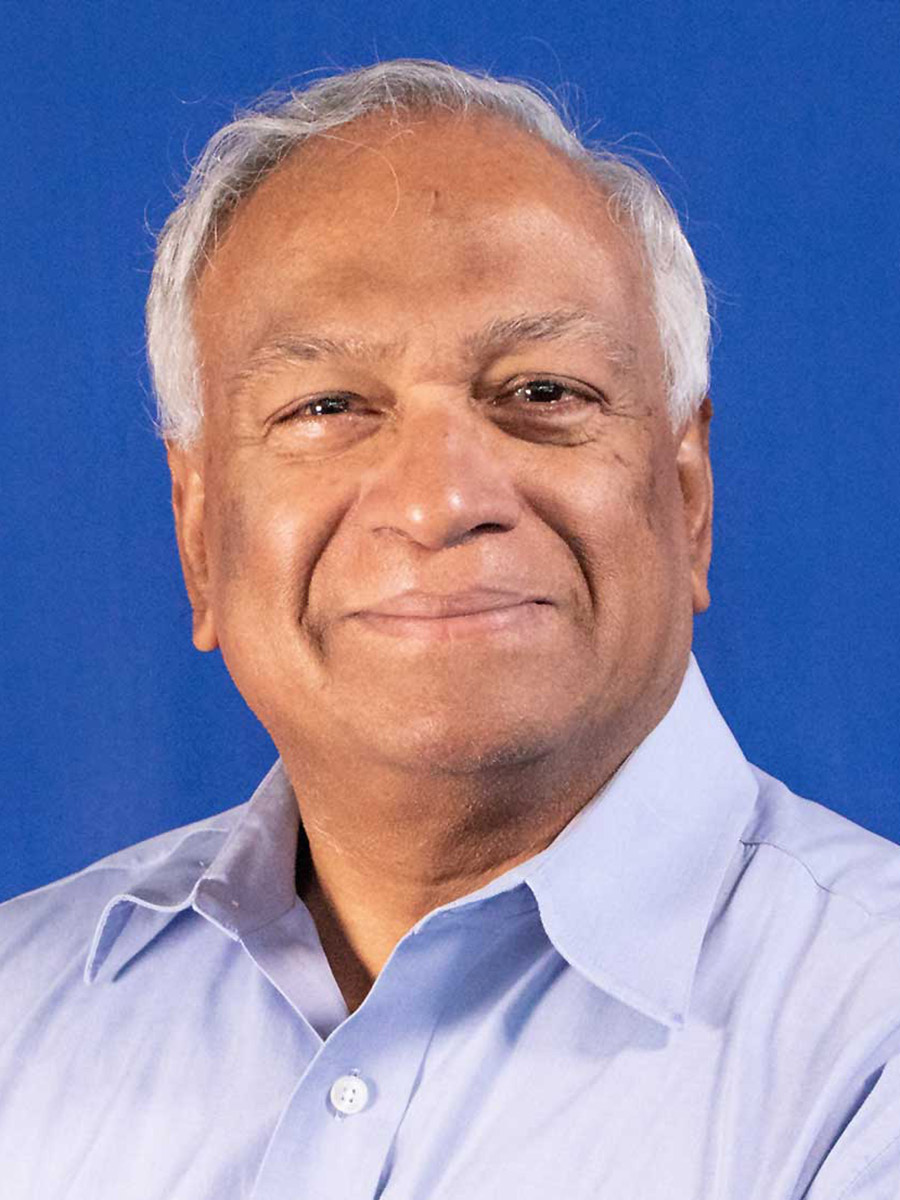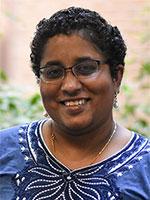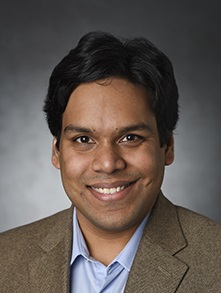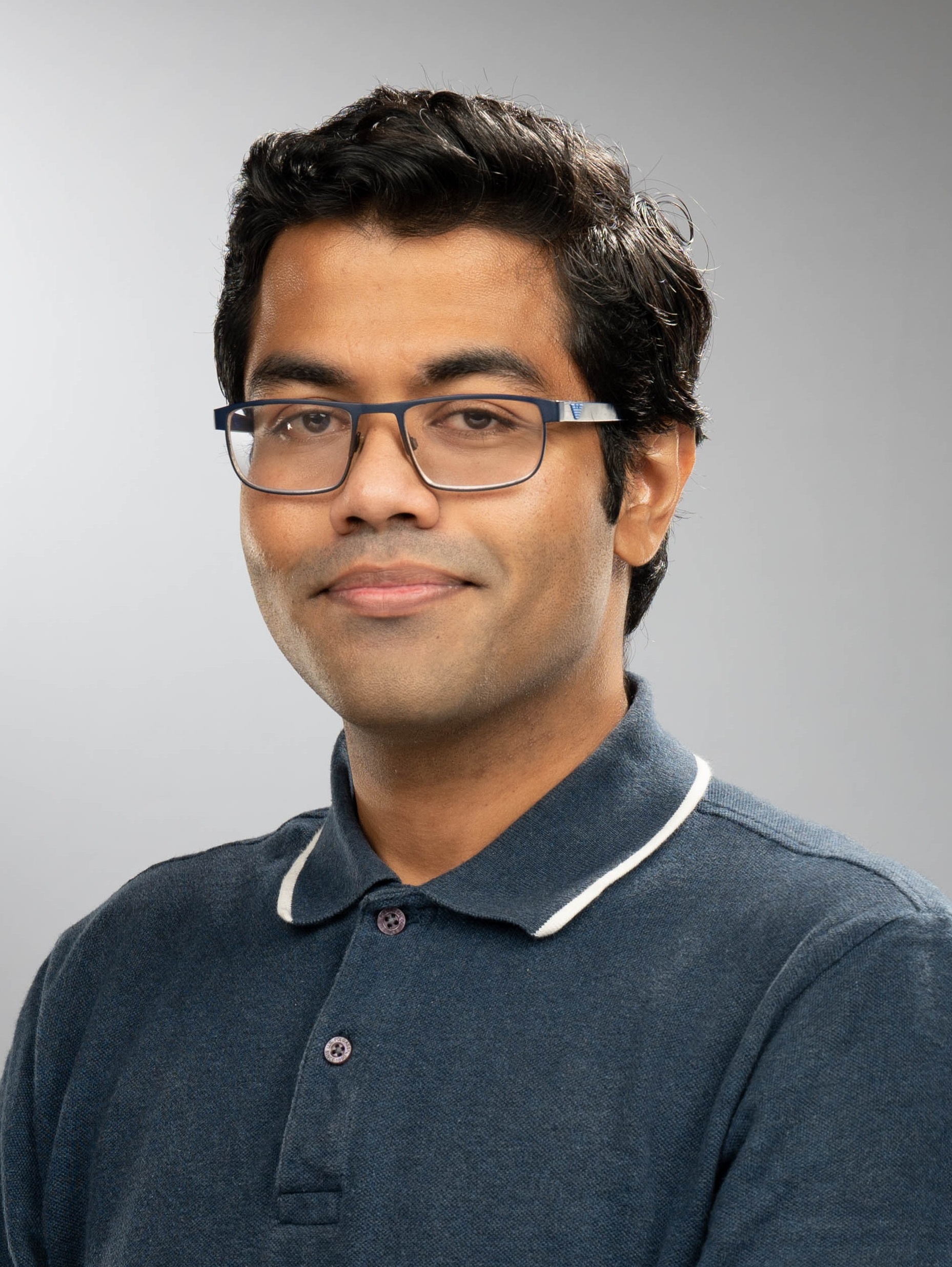MultiLayer Network (MLN) Community Infrastructure for Data, Interaction, Visualization, and SoftwarE
Lecture Series
8 lectures were organized from April 9, 2022 to June 11, 2022. Lecture recordings and details can be accessed below.
| Saturday, April 9, 2022 (10 AM CDT)
|
Sharma Chakravarthy (Professor, UTA), Sanjukta Bhowmick (Associate Professor, UNT), Kamesh Madduri (Associate Professor, PSU)Kick-off with Focus, Scope, and Details of the Project |
| Saturday, April 16, 2022 (10 AM CDT)
|
Animesh Mukherjee (Associate Professor, Indian Institute of Technology, Kharagpur, India)The rise and rise of interdisciplinary research: Understanding the interaction dynamics of three major fields -- Physics, Mathematics & Computer Science |
|
Abstract: The distinction between sciences is becoming increasingly more artificial -- an approach from one area can be easily applied to the other. More exciting research nowadays is happening perhaps at the interfaces of disciplines like Physics, Mathematics and Computer Science. How do these interfaces emerge and interact? For instance, is there a specific pattern in which these fields cite each other? In this article, we investigate a collection of more than 1.2 million papers from three different scientific disciplines -- Physics, Mathematics, and Computer Science. We show how over a timescale the citation patterns from the core science fields (Physics, Mathematics) to the applied and fast-growing field of Computer Science have drastically increased. Further, we observe how certain subfields in these disciplines are shrinking while others are becoming tremendously popular. For instance, an intriguing observation is that citations from Mathematics to the subfield of machine learning in Computer Science in recent times are exponentially increasing.
Animesh is an Associate Professor and A K Singh Chair at the Dept of CSE, IIT Kharagpur. His research interests presently are in online content governance with special stress on hate speech detection and mitigation, auditing and mitigation of biases in two-sided recommendation platforms. Animesh regularly publishes in top AI/ML forums including WebConf, AAAI, ACL, EMNLP etc. He is a recipient of many awards, INAE YE, INSA YS, IBM Faculty Award, Ethics in AI research Award from Facebook to name a few. |
| Friday, April 22, 2022 (10 AM CDT)
|
Martin Rosvall (Professor, Department of Physics, Umeå University, Sweden)Identifying modular flows on multilayer networks with Infomap |
|
Abstract: I will explain the machinery of the map equation, how it extends to multilayer networks, and how minimizing its modular description length using Infomap reveals modular flows within and across layers. I will also show some recent results of a Bayesian extension that enables more robust community detection in multilayer networks.
Martin Rosvall is a professor of physics with a focus on computational science. He is the head of the Integrated Science Lab, IceLab. IceLab is an interdisciplinary hub at Umeå University in northern Sweden working to break down the traditional boundaries between different scientific disciplines. In his research, Martin studies information flows through social and biological systems to comprehend their inner workings. By simplifying myriad network interactions into maps of significant information flows, he and his multidisciplinary collaborators address research questions about how diseases spread, plants respond to stress, and life distributes on Earth. The goal is to generate reliable predictions and suggest successful strategies to secure a sustainable future. |
| Friday, April 29, 2022 (10 AM CDT)
|
Serdar Bozdag (Associate Professor, University of North Texas, Texas, USA)SUPREME: A Cancer subtype Prediction Methodology Integrating Multiomics Data using Graph Convolutional Neural Network |
|
Abstract: Cancer is a complex and heterogenous disease, thus methods to find homogenous subtypes of cancer patients have been an active research area. Reduced cost of high throughput technologies enabled scientist to generate different data modalities such as genomics, transcriptomics, and epigenomics gene expression. Integrating these different -omics datasets (aka multi-omics) to better characterize the underlying biology of cancer pathophysiology is an important task. One effective approach to integrate different data modalities is to encode these datasets in biological networks. Following this principle, in this work, we developed a cancer subtype prediction method called SUPREME. SUPREME builds patient similarity networks for each data modality and learns patient node embeddings on these networks by employing Graph Convolutional Network (GCN) algorithm. The patient embeddings are then utilized in a downstream machine learning task to predict cancer subtype. We applied SUPREME on breast cancer datasets from two different resources and observed that SUPREME outperformed seven GCN-based and baseline methods in the cancer subtype prediction task. We also observed that the subtypes predicted by SUPREME had significant survival differences, which indicates the biological relevance of our findings. In terms of survival difference, our method outperformed nine cancer subtyping tools and baseline methods.
Dr. Serdar Bozdag is an Associate Professor in the Department of Computer Science and Engineering and the Department of Mathematics with an affiliation with the BioDiscovery Institute. Dr. Bozdag's research goal is to develop open-source integrative computational tools based on machine learning/deep learning and network biology to analyze high dimensional biological, clinical and environmental exposure datasets to infer context-specific gene regulatory interactions and modules, and to predict disease associated genes and patient-specific drug response. |
| Saturday, May 7, 2022 (11 AM CDT)
|
Lili Jiang (Associate Professor, Department of Computing Science, Umeå University, Sweden)Multilayer Network Data Analysis in Privacy-concerned Data Federation |
|
Abstract: In this lecture, I will introduce our work applying multilayer network (MLN) analysis in combination with content analysis to handle data federation with privacy concern. The data we used is social media data (e.g., Facebook) and the features we focused include demographic info, sentiment info, personality test info, and social media posts etc. In addition, I will briefly talk about our ongoing work on pandemic analysis with MLN learning.
Lili has been working on AI-enhanced knowledge harvesting through text mining, information retrieval, natural language processing, machine learning, data federated learning, and privacy preservation. |
| Friday, May 13, 2022 (11 AM CDT)
|
Arif Khan (Computer Scientist, Pacific Northwest National Laboratory, Washington, USA)Graph Analytic Approaches for Large-Scale Disruption Analysis in Multi-Layer Air Travel Networks |
|
Abstract:
Air travel is a fundamentally important part of modern living and business. We propose and
implement analytics rooted in network science and their multi-layer network (MLN) extensions to study
the effect of delays and disruptions jointly affecting the airports, airlines, and the passengers. Specifically,
using real-world data, we detail methods to tackle the scenario analysis problem from all the above
perspectives in a hypothetical large-scale network disruption setting. In doing so, we leverage methods
from graph analytics, walks on multi-layered networks, contingency analysis, and Monte Carlo methods to
perform principled analyses with the US domestic air travel network (ATN). First, through the application of
diffusion models on the ATN, we identify the top influential airports in terms of delay and disruption spread.
Thereafter, we utilize these results to demonstrate our MLN-based coverage metrics that can help quantify
the impact of the disruptions at an airport or for an airline or at an airport-airline combination on passenger
itinerary volumes. We finally perform contingency analyses on the reduced set of the top influential airports
and illustrate the impact of the same for the most significant combinations. The analyses developed in this
research can therefore help planners and analysts run what-if scenarios and develop strategies to mitigate the
effect of disruptions.
Dr. Arif Khan joined Pacific Northwest National Laboratory in August 2017. His research interest includes graph algorithm, high performance computing, approximation algorithm along with their applications in bioinformatics, social network and machine learning. His goal is to explore how approximation algorithms can solve big graph problems using leadership class supercomputers. Arif graduated in 2017 with a Ph.D. in Computer Science from the Purdue University, West Lafayette, Indiana. His doctoral research was in the intersection between high performance computing and combinatorial scientific computing (CSC). He developed new approximation algorithms for b-Matching and b-Edgec Covers which are fundamental combinatorial problems with numerous applications in science and engineering. He also developed scalable software for these graph problems and demonstrated scalability across tens of thousands of processors on the DOE leadership class machines. |
| Friday, May 27, 2022 (11 AM CDT)
|
Matteo Magnani (Associate Professor, Department of Information Technology, Uppsala University, Sweden)Multilayer Networks meet Data Engineering |
|
Abstract: The analysis of complex online information requires the availability of rich data representation models and data analysis algorithms, for example multilayer networks and multilayer network clustering algorithms. At the same time, data analysis processes often require the ability to store "raw" data not yet prepared to perform a specific type of analysis and the capability to efficiently transform (or query) the raw data. This is for example important when performing interactive and visual data analysis, where several data dimensions, data subsets and aggregations have to be computed dynamically to explore different views over the data. In this talk I will present an extension of the multilayer network model providing data manipulation functionality. This extension is based on the concept of data cube, often used in data warehousing and data mining.
Matteo Magnani is Associate Professor at the Department of Information Technology, Uppsala University, Sweden. He leads the Uppsala University Information Laboratory, is a PI for the NORdic observatory for digital media and information DISorder (NORDIS), and coordinates the Master's programme in Data Science at Uppsala University. His research is in social data science, with a focus on (multilayer) social network analysis and more recently on the analysis of online visual political communication. He as authored several research and survey papers on multilayer networks, the book "Multilayer Social Networks" for Cambridge University Press, and develops the multinet library (Link1, Link2). |
| Friday, June 3, 2022 (10 AM CDT)
|
Vasudha Bhatnagar (Professor, Department of Computer Science, University of Delhi, Delhi, India)Modeling Epidemic Dynamics on Multilayer Networks |
|
Abstract:
The spread of contagious diseases in a given population can be studied using the wireframe of social contact networks. The biological contagion transmits from infected individuals to susceptible neighbors through close contact and its spread in the population can be traced by observing the daily infections. In the real world, the dynamics of the epidemic spread depend on a multitude of exogenous factors, including vaccination prevalence, behavioral patterns, socio-economic factors, education and awareness of the disease, etc. Each of these factors also percolates through the population via contacts in physical or cyber space, albeit following unique spreading dynamics.
This talk is based on the recent research related to epidemic dynamics on multilayer networks which are well suited to model socio-physical systems. Working with the example of vaccine prevalence and information spread, we will see how multiple variables can be modeled on multiple layers of the network. We will also understand the issues and challenges that arise in attempting to model real-life situations during spread of epidemics.
Dr. Bhatnagar did her masters in Computer Applications from University of Delhi, Delhi, India in 1985. She worked in Centre for Development of Telematics from 1985 - 1989 as a software engineer in Operating System and Traffic group. Thereafter she taught UG courses in Moti Lal Nehru College (M), University of Delhi. She completed her doctoral studies from Jamia Millia Islamia, New Delhi, India in 2001. Currently, she is a Professor in the Department of Computer Science, University of Delhi, Delhi, India. Her broad area of interest is Data Analytics. She has worked on problems related to mining of streaming data sets, projected clustering, outlier detection, classification of imbalance data sets, classification and cluster ensembles. Her current interests include network science, social theories, time evolving graphs and text analytics. |
| Saturday, June 11, 2022 (11 AM CDT)
|
Srinath Srinivasa (Professor and Dean (R&D), International Institute of Information Technology, Bangalore, India)Diffusion and Perturbation Modeling for Policy Interventions |
|
Abstract:
Policy Interventions seek to change the course of a complex system like a society or an organization, through one or more policy changes. Oftentimes, interventions that are not well designed, tend to create collateral network effects as well as backlash from the population, that negates the primary purpose of intervention. Policy Support System (PSS) is an emerging paradigm that uses Big Data and Network Science to model the effects of policy interventions, and also suggest suitable interventional packages for specific outcomes. In this talk, we will look at two such efforts at intervention modeling. The first was to model the projected diffusion of the COVID pandemic in the first wave for Bangalore city, based on the preliminary data about outbreaks and commuting patterns. The second activity addresses the problem of sustainable development, and uses perturbation theory to model the projected effects of an intervention on the sustainable development indicators.
Srinath Srinivasa heads the Web Science lab and is the Dean (R&D) at the International Institute of Information Technology – Bangalore (IIITB), India. Srinath holds a Ph.D (magna cum laude) from the Berlin Brandenburg Graduate School for Distributed Information Systems (GkVI) Germany, an M.S. (by Research) from Indian Institute of Technology – Madras (IITM) and B.E. in Computer Science and Engineering from The National Institute of Engineering (NIE) Mysore, India. His research interests are in understanding how the WWW is affecting humanity; and how the web can enable social empowerment and capability building. He has participated in several initiatives for technology enhanced education including the Edusat program by the Vishveshwaraiah Technological University, The National Programme for Technology Enhanced Learning (NPTEL), a Switzerland based online MBA school called Educatis, and IIITB’s educational outreach program with Upgrad. He has served on various technical and organizational committees for international conferences like International Conference on Weblogs and Social Media (ICWSM), ACM Hypertext, International Conference on Management of Data and Data Science (COMAD/CoDS), International conference on Ontologies, Databases and Applications of Semantics (ODBASE), International Conference on Big Data Analytics (BDA), etc. As part of academic community outreach, Srinath has served on the Board of Studies of Goa University and as a member of the Academic Council of the National Institute of Engineering, Mysore. He has served as a technical reviewer for various journals like the VLDB journal, IEEE Transactions on Knowledge and Data Engineering, and IEEE Transactions on Cloud Computing. He has also served as an Associate Editor of the journal Sadhana from the Indian Academy of Sciences. He is also the recipient of various national and international grants and awards, from foundations and companies like: EU Horizon 2020, UK Royal Academy of Engineering, Research Councils UK, MEITy, DST, Siemens, Intel, Mphasis, EMC and Gooru. |
